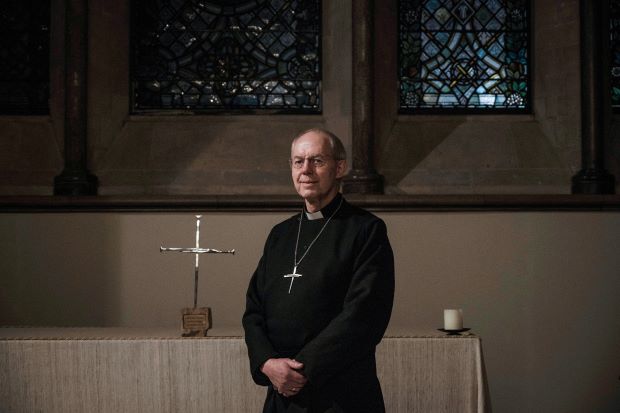Archbishop of Canterbury resigns over UK church abuse scandal

By Stephen Castle
LONDON — The Archbishop of Canterbury, the Most Rev. Justin Welby, on Tuesday (12) announced his resignation, days after a report concluded that he had failed to ensure a proper investigation into claims that more than 100 boys and young men were abused decades ago at Christian summer camps.
Pressure had mounted on Welby, the spiritual leader of 85 million Anglicans worldwide, after the report was published and after one senior figure in the church, the Bishop of Newcastle, Helen-Ann Hartley, called on him publicly to step aside.
In a statement Tuesday, Welby said, “It is very clear that I must take personal and institutional responsibility for the long and re-traumatizing period between 2013 and 2024.”
He said he had sought permission to resign from King Charles III, and added: “I hope this decision makes clear how seriously the Church of England understands the need for change and our profound commitment to creating a safer church. As I step down I do so in sorrow with all victims and survivors of abuse.”
Welby, 68, has held his position since 2013 and was scheduled to retire in 2026. His departure brings to a premature end the tenure of the country’s best-known cleric, who took over the leadership of the Church of England at a time of tension between liberals and traditionalists.
Last week an independent review concluded that the archbishop had failed to take sufficient action following reports of “abhorrent” abuse by John Smyth, a senior British lawyer, of more than 100 boys and young men in the 1970s and 1980s. Welby said in 2017 that he had met Smyth but “wasn’t a close friend of his”.
The report, compiled by Keith Makin, a former social services director, said that over four decades, Smyth became “arguably, the most prolific serial abuser to be associated with the Church of England”, operating in three different countries where he inflicted physical, sexual and psychological attacks on as many as 130 people. He died in 2018 in South Africa.
The report criticized the actions of a number of people within the church. “Despite the efforts of some individuals to bring the abuse to the attention of authorities, the responses by the Church of England and others were wholly ineffective and amounted to a cover-up,” it said.
In a statement in response to Makin’s report, Welby said he had had “no idea or suspicion of this abuse before 2013,” but that he then “personally failed” to ensure that the claims of abuse were investigated properly.
Repeating an apology he made to the reviewers, Welby acknowledged that “he did not meet quickly with victims after the full horror of the abuse was revealed” by Britain’s Channel 4 TV in 2017. “I promised to see them and failed until 2020. This was wrong,” he said.
That television report gave details of how Smyth had groomed boys and young men at Christian summer camps, universities and at Winchester College, a top British private school, before subjecting them to savage beatings.
Smyth convinced those he abused “that the way to Christ was through suffering,” the Makin report said, adding that he subjected them to “traumatic physical, sexual, psychological and spiritual attacks. The impact of that abuse is impossible to overstate and has permanently marked the lives of his victims.”
The report said it had found “clear evidence that the abuse perpetrated by John Smyth in the UK” was “‘covered up’, minimized and held as ‘secret’ from at least 1982 (and possibly earlier.)”
From July 2013, the Church of England knew, at the highest level, about the abuse, it said, while Welby became aware of the claims against Smyth around August 2013, in his capacity as Archbishop of Canterbury.
It added: “There was a distinct lack of curiosity shown by these senior figures and a tendency toward minimization of the matter, demonstrated by the absence of any further questioning and follow-up.”
Smyth could and should have been reported to the police in 2013, a step that probably would have led to a full investigation, the uncovering of the serial nature of the abuses in Britain, involving multiple victims, and the possibility of a conviction being brought against him, the report said.
-New York Times


Comments are closed, but trackbacks and pingbacks are open.